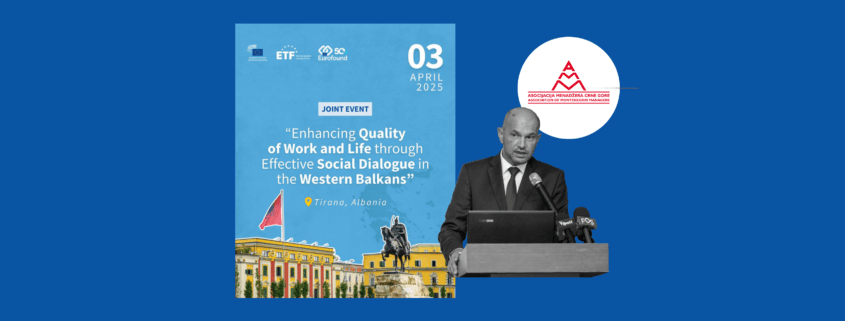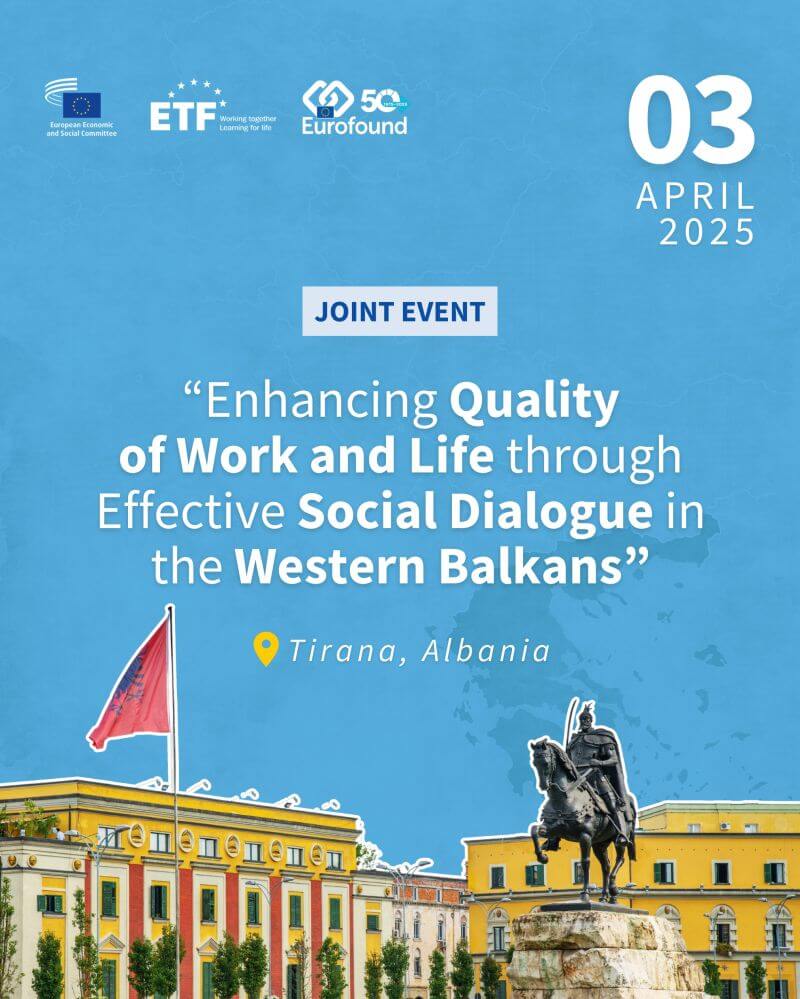Western Balkans Managers Step Up as EU Eyes Deeper Integration
Today, 3 April, the Western Balkans takes a meaningful step toward deeper European integration and more resilient labour markets.
High-level EU institutions and regional actors will gather in Tirana to reaffirm the power of social dialogue as a strategic lever for stability, development, and inclusion.

Organised jointly by the European Economic and Social Committee (EESC), the European Training Foundation (ETF), and Eurofound, the summit “Enhancing Quality of Work and Life through Effective Social Dialogue in the Western Balkans” brings together EU officials, national authorities, social partners, and civil society. The region’s managers, who increasingly play a central role in shaping the future of work, also claim their space.
A European Mandate for Dialogue
The European Commission and the social partners, including CEC European Managers, signed the new pact for social dialogue a couple of days ago (read Strengthening Social Dialogue: EU Commission Unveils Pact and Names Special Envoy).
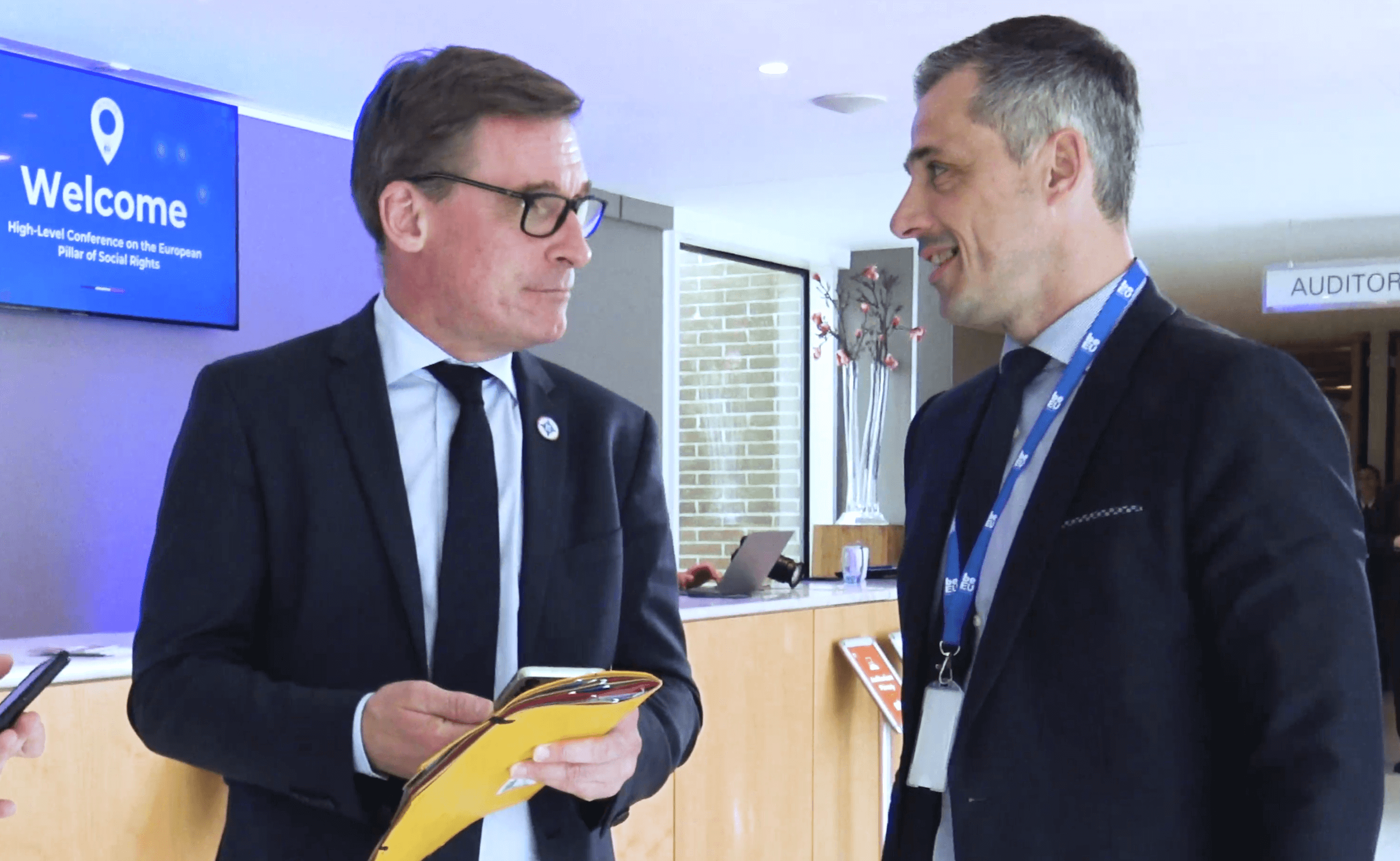
President of the European Economic and Social Committee, Oliver Röpke (left) and President of CEC European Managers, Maxime Legrand (right) at high-level summit in La Hulpe, 2024.
“The time to integrate social dialogue fully, well ahead of accession, is now”
Declares Oliver Röpke, President of the EESC.
He calls it “not a luxury or an afterthought,” but a cornerstone of the European Social Model and essential for achieving sustainable, inclusive growth.
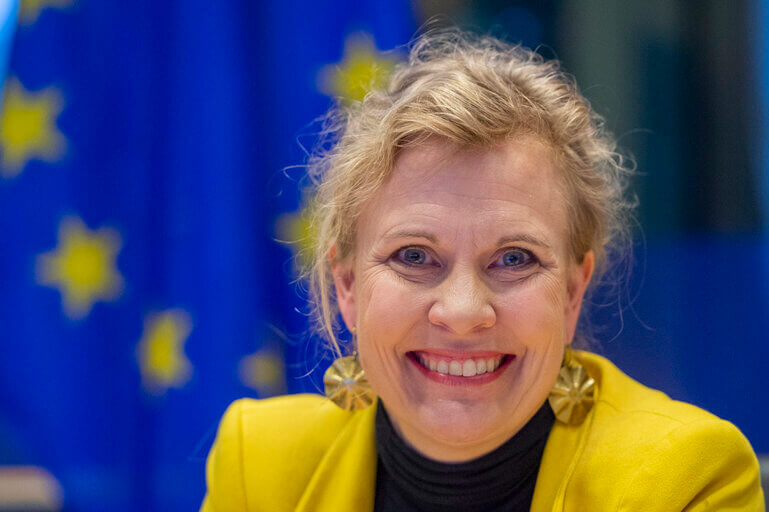
Pilvi TORSTI, Director of the ETF
Pilvi Torsti, Director of the ETF, underlines the urgency:
“Social dialogue isn’t just about boosting the economy – it’s also one of the best ways to protect democracy and maintain stability.”
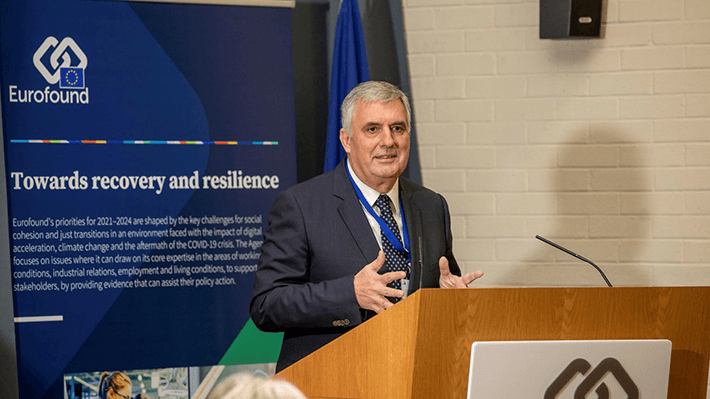
Ivailo Kalfin, Executive Director of Eurofound
Ivailo Kalfin, Executive Director of Eurofound, places the initiative in the context of EU enlargement:
The future of the Western Balkans is of crucial importance for Europe. Working together with social partners is fundamental.
CEC’s Managerial Voice in the Western Balkans: Bridging Strategy and Social Impact
CEC European Managers has two strong voices in the Western Balkans: Budimir Raičković, President of the Montenegrin Association of Managers (AMM), and Jelena Bulatovic, Executive Director of the Serbian Association of Managers (SAM). Despite being absent at the joint event, Montenegrin and Serbian managers actively facilitate social dialogue in their countries.
Both organisations, AMM and SAM, reinforce the strong representativeness of CEC European Managers, gathering the interests of 1M managers on the continent and bringing a valuable perspective from the Western Balkans that is very well received in Brussels.
On the day of the summit, they launched some key messages:
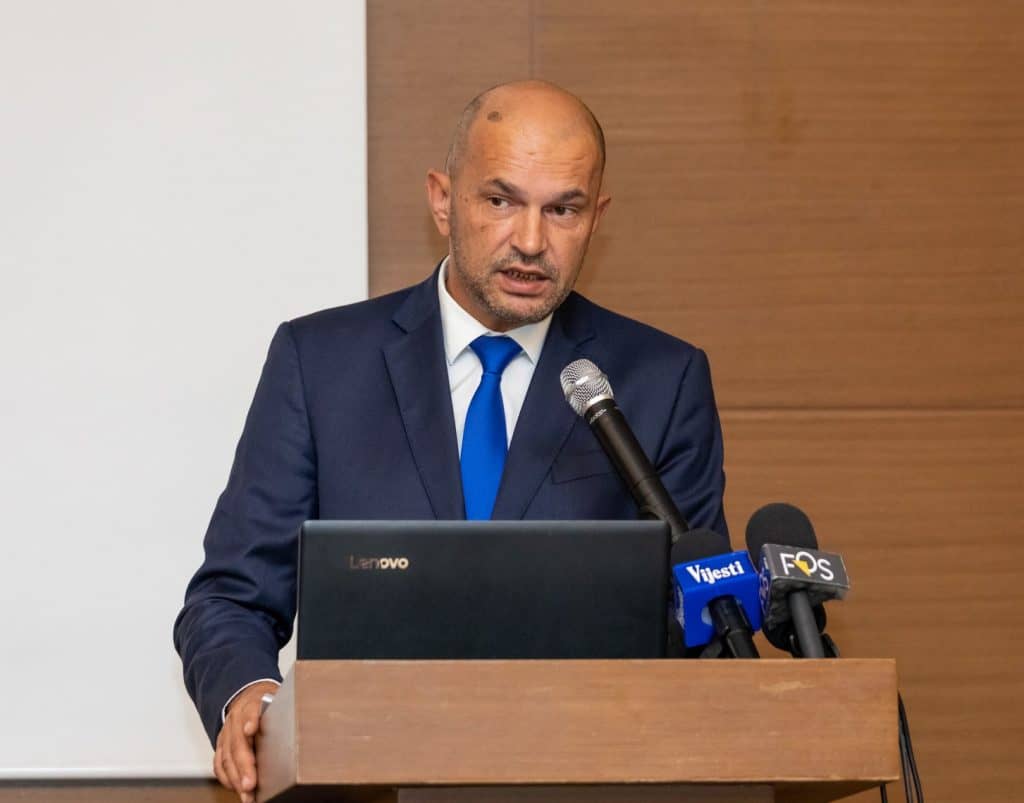
Budimir Raičković, President of the Montenegrin Association of Managers (AMM)
“Leaders and Managers play a key role in advancing and applying social dialogue mechanisms,” Raičković says. “We are not just observers or facilitators—we are active participants in change processes, particularly in labour relations and socio-economic reforms.”
He continues:
“Western Balkans’s social dialogue must include managers. We see social dialogue as a continuous process—one that requires strategic commitment and cross-sectoral trust. In Montenegro, we’ve proven that dialogue can be a tool not just for conflict resolution, but for innovation, productivity, and inclusion.”
As economies transition toward green and digital models, Raičković stresses that managers are vital in navigating that change:
“The transformation of work, especially in the digital and green transitions, cannot be led without managers. They are the ones implementing policies, building teams, and driving cultural change inside organisations.”
He calls for institutional recognition of the managerial role in shaping national reforms:
“We urge institutions at the national and European level to not only hear but truly integrate the managerial perspective in shaping the future of work. Managers must sit at the table, not just be handed the memo afterward.”
Reaffirming the region’s European path, he adds:
“We strongly support the integration of the Western Balkans into the European Union—not just politically, but through shared social and workplace standards. Effective leadership, grounded in ethics and dialogue, is part of the European DNA.”
Shortly after the new Executive Board started its new mandate, CEC European Managers President Maxime Legrand signed a statement supporting Montenegro’s leadership regarding EU enlargement and granted it to our member organisation in the country.
The EU institutions also seem to have the Western Balkans region high on their agenda. When asked, the European External Action Service (EEAS) confirmed that the EU is fully committed to the region’s integration.
Accession talks are underway with Albania, Montenegro, and Serbia.
In March 2020, the Council also agreed to open accession negotiations with North Macedonia, and the so-called screening process is underway.
In December 2023, the European Council decided to open accession negotiations with Bosnia and Herzegovina, now a candidate country, once the necessary degree of compliance with the membership criteria is achieved. Kosovo is also a potential candidate for EU membership.
One of the most essential prerequisites for a country to join the European Union is to be equipped with a consistent Social Dialogue between governments, trade unions, and employers. For that, Budimir Raičković, President of the Montenegrin Association of Managers (AMM), concludes:
“We are committed to supporting managers in developing the skills and resilience needed to lead in a new era of work—one that is green, digital, and above all, human-centred.”
Dialogue as a Driver of Accession and Reform
The Tirana summit focuses on improving working conditions, promoting lifelong learning, and strengthening youth employment through initiatives like the Youth Guarantee.
Participants underline the importance of tripartite partnerships at the intersection of economic strategy and social justice.
We are convinced that managers’ active participation will be key to meeting the EU’s labour and skills standards.
Supporting Structures and European Solidarity
With institutions like ETF, Eurofound, and EESC driving research, coordination, and capacity-building, and with the support of European social partners like CEC European Managers, the region has a more straightforward pathway to building resilient and fair labour markets.

